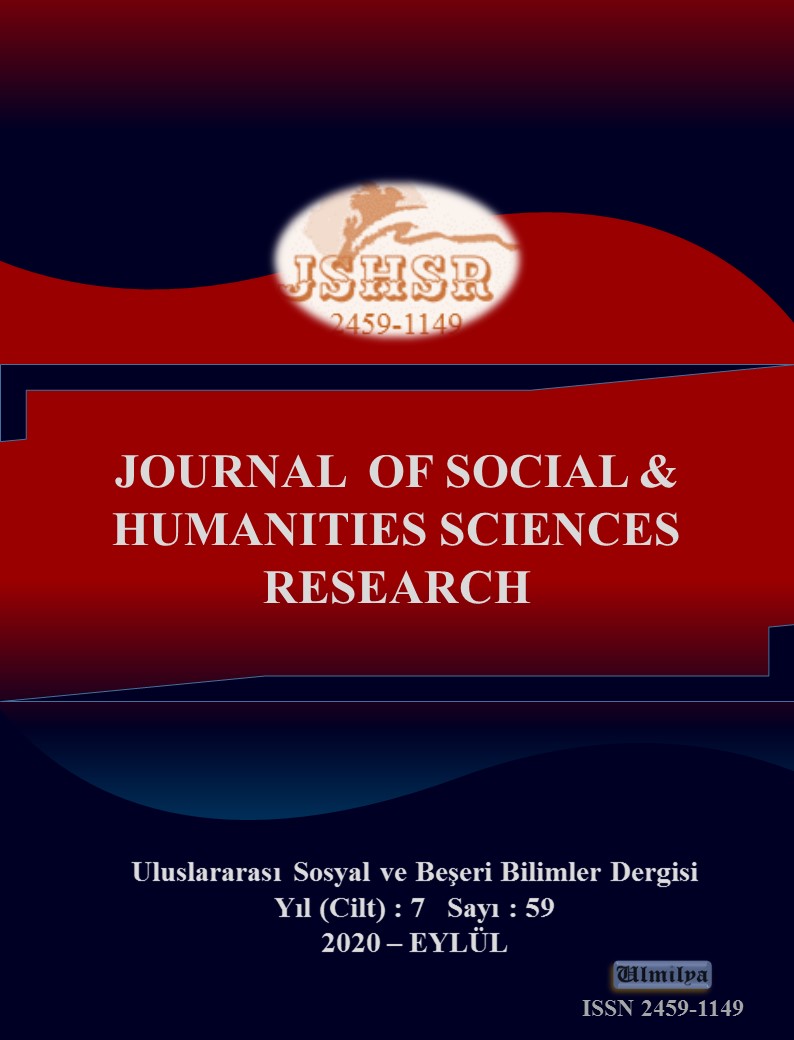PREVENTION OF NEGATIVE EXTERNALITIES AND THE IMPORTANCE OF SUSTAINABLE DEVELOPMENT APPROACH
DOI:
https://doi.org/10.26450/jshsr.2004Keywords:
Environment, Externalities, Ecological Balance, Sustainable DevelopmentAbstract
The purpose of this study is to prevent negative externalities and to consider the importance of a sustainable development approach in a qualitative way.
As a result of the economic activities carried out by an economic unit, it is called "externalities" that other economic units are positively or negatively affected by this and that there is no compensation for this effect. Negative externality; marginal social costs within an economy are expressed as greater than marginal special costs. Environmental pollution is one of the most common examples of the negative externality. In addition to market-based tools such as marketable pollution rights, taxes, fees, subsidies, control and control tools called direct control are involved in the internalization of environmental externalities caused by the failures of markets (Kargı ve Yüksel, 2010: 183).
Although significant achievements have been achieved in the full uses of technology and resources, unlimited thinking of progress, and policies that have been followed, the same developments do not occur in their effective use. With the decrease in diversity within the ecosystem, the deterioration of the ecological balance and the depletion of mineral fuels, the confidence in the current economic thinking is beginning to weaken. (Dağdemir, 2003: 54).
The understanding of sustainable development is based on the principles of establishing a development approach that will prevent negative externalities that may arise from environmental problems and to ensure that the current situations are sustainable (Kaypak, 2011: 24).
Sustainable development is defined as the ability of the current generation to meet its needs without jeopardizing the ability to meet the needs of future generations (Bayraktutan ve Uçak, 2011: 17). Sustainable development is defined as the ability of the current generation to meet its needs without jeopardizing the ability to meet the needs of future generations (Gündüz, 2004: 58).
With global changes, the understanding of sustainable development has been stated that the development of a society should be evaluated not only from economic perspectives, but also from environmental, social and human aspects, and has undergone some changes. It has been stated that the increase in the world's population, the growth in income and consumption are also being questioned. For these reasons, sustainable development is being addressed in both environmental and natural resources dimensions, from human perspectives. It has been accepted that a new understanding should be introduced to the issues of changing the content in the existing development concepts and questioning definitions. As a result of this requirement, the concept of "Sustainable Development" has emerged (Özçağ ve Hotunluoğlu, 2015: 304).
Downloads
Published
How to Cite
Issue
Section
License
Copyright (c) 2020 INTERNATIONAL JOURNAL OF SOCIAL HUMANITIES SCIENCES RESEARCH

This work is licensed under a Creative Commons Attribution 4.0 International License.


